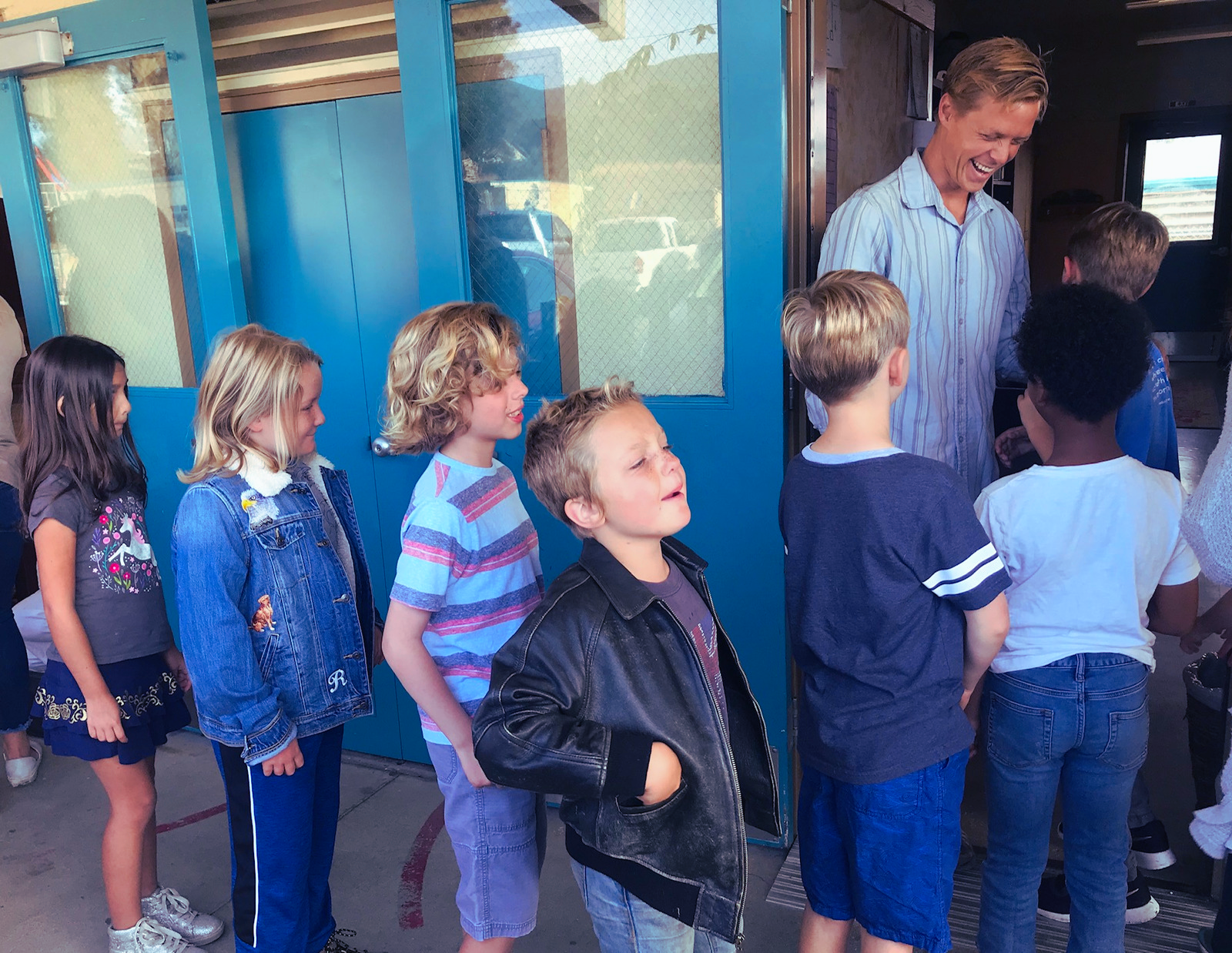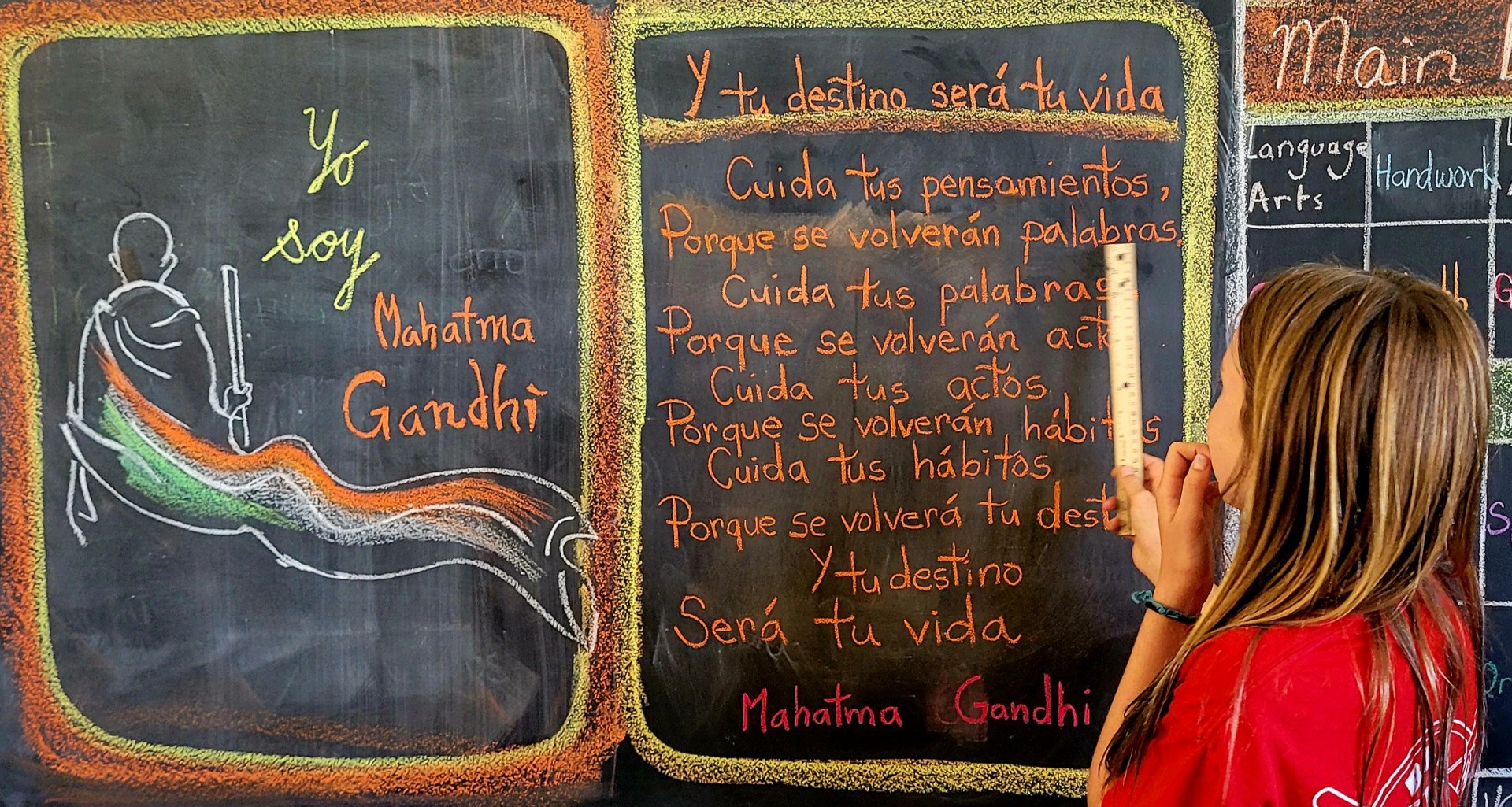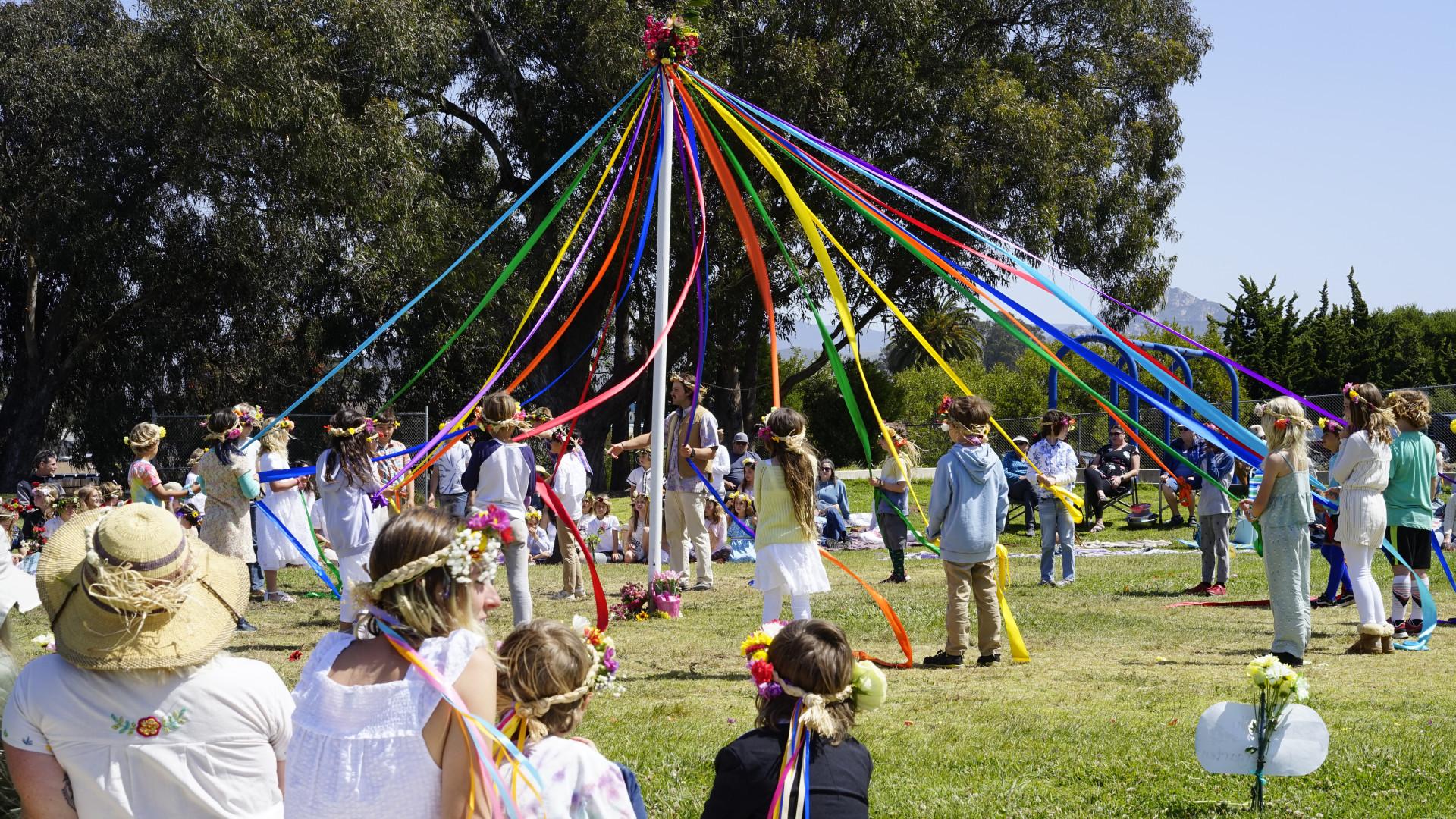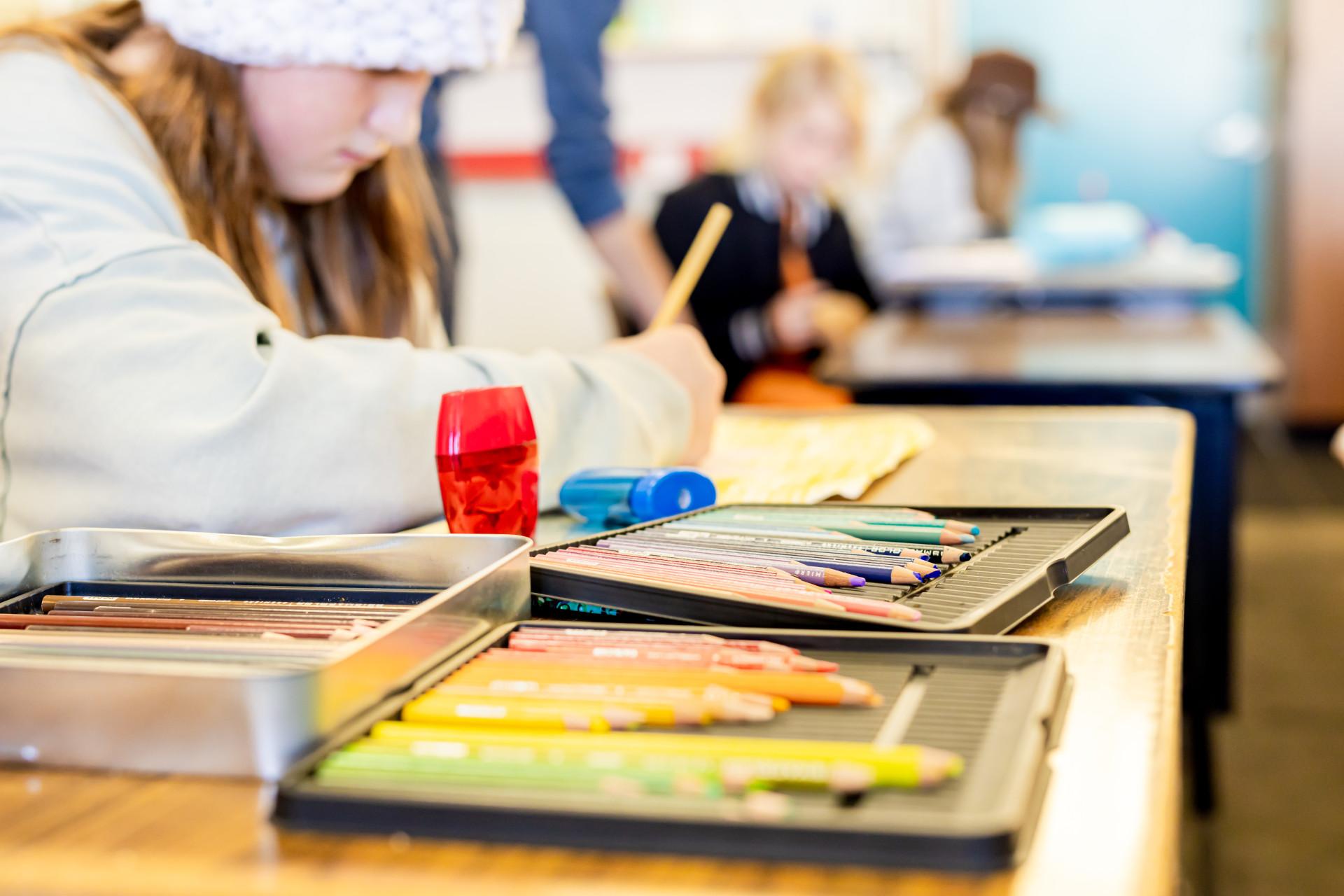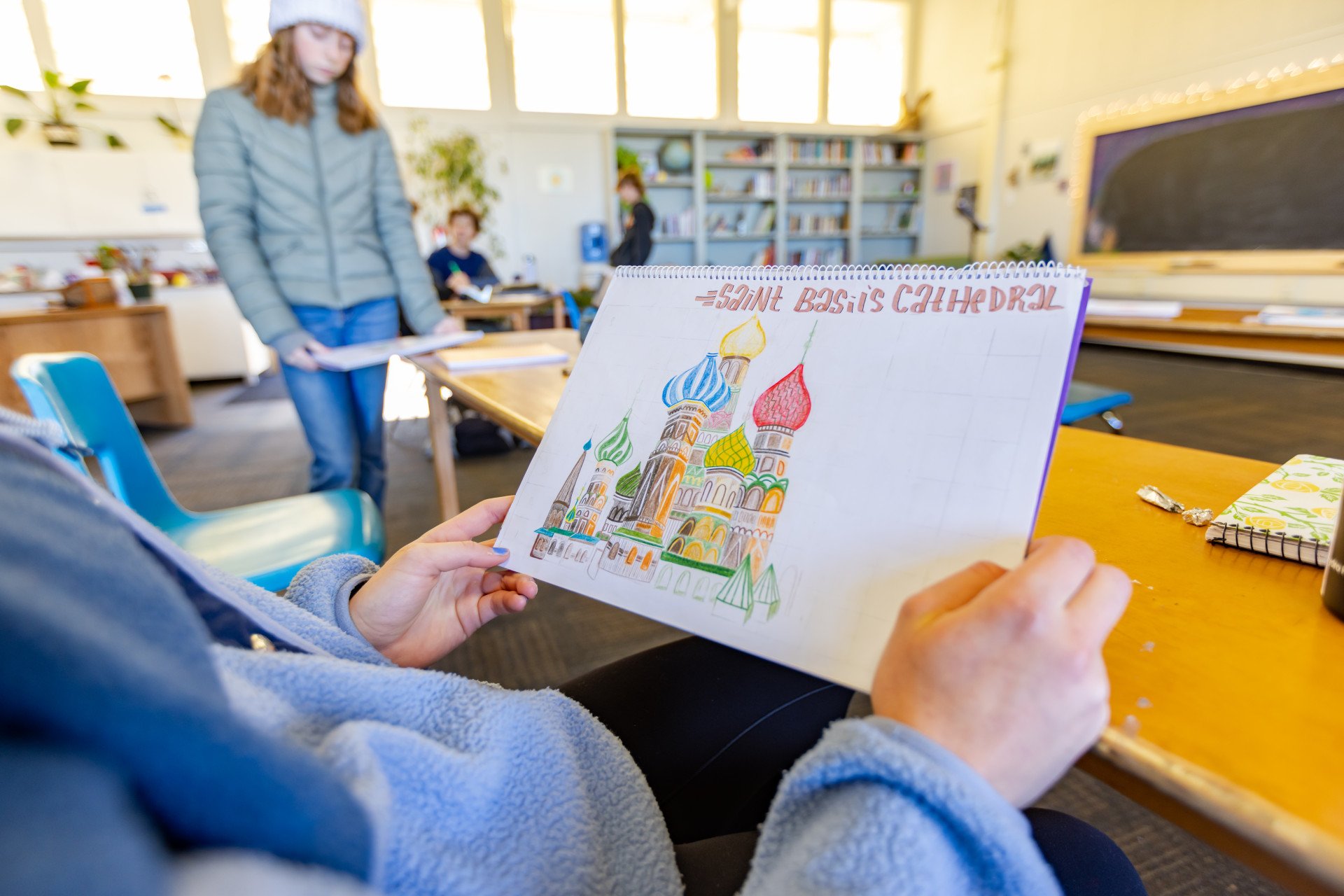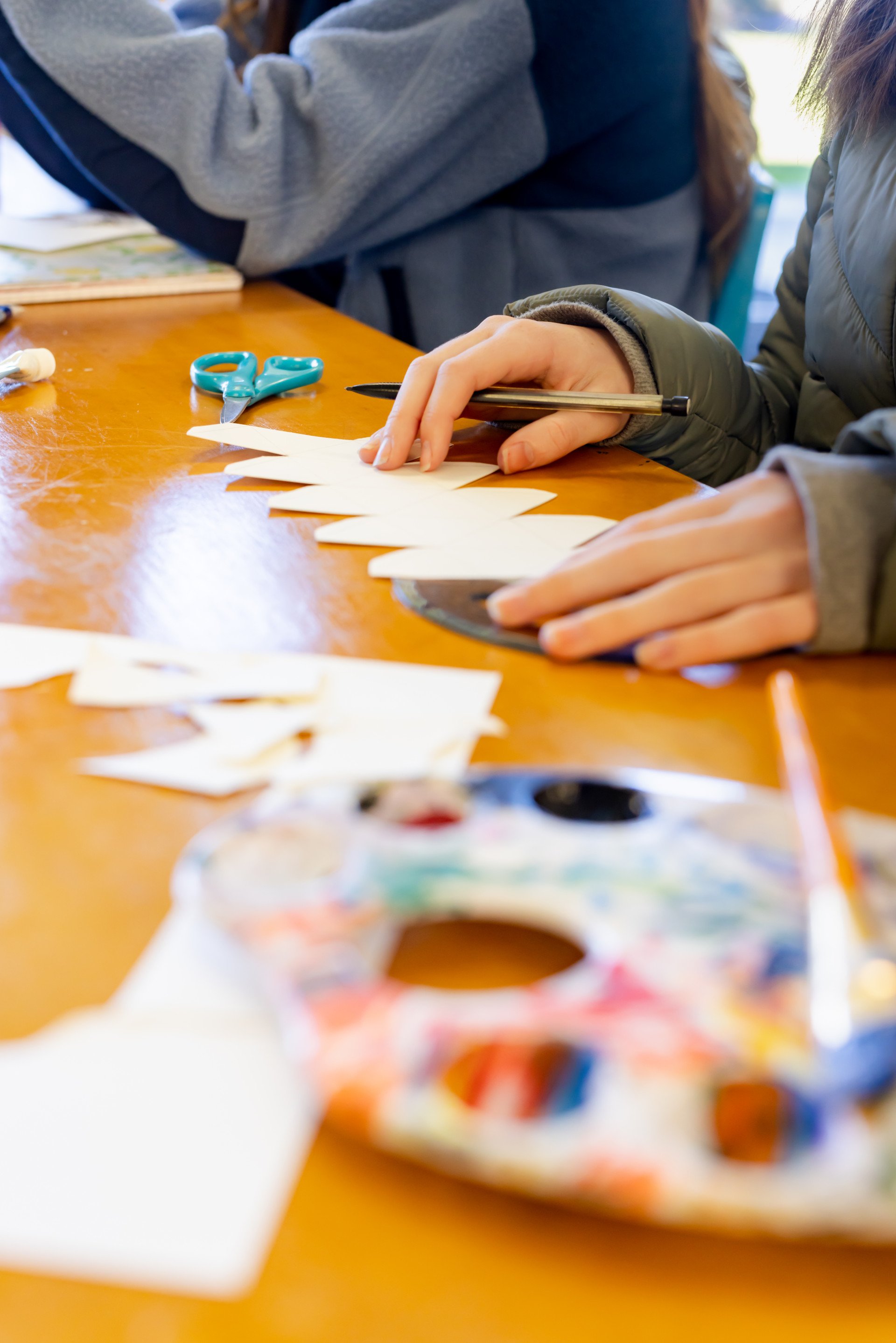“Acquisition of knowledge is not the end, but the means to the end; the end consists in the attainment, thanks to this knowledge of the higher worlds, of greater and truer self-confidence, a higher degree of courage, and a magnanimity and perseverance such as cannot, as a rule, be acquired in the lower world.”
– Rudolf Steiner
Why our approach to Education Matters
Curious about what makes Wishing Well education different? In short, we engage in creative social and environmental actions, educating children for the whole of life. Students emerge as imaginative, independent problem-solvers who meet the world with initiative and purpose.
What Is Waldorf-Inspired Education?
Wishing Well is a school inspired by Waldorf Education. Waldorf education cultivates social and emotional intelligence and academic excellence, creating a strong foundation for the whole child. Providing a detailed, richly artistic curriculum that is harmonious with the developmental stages of students, as they progress from early childhood to middle school, nurtures the inner life of each individual. Rather than shaping or forming them, we align with the Waldorf pedagogy which allows students to unfold in their own unique way. Facilitating a healthy and enduring human relationships between teacher, student, classmates, and community, supports them in becoming confident, engaged adults. With an added awe and reverence for nature, students develop an authentic connection to and sense of stewardship for nature, while also igniting a passion for lifelong learning.
Curriculum
Our curriculum aims not only to match the key developmental stages of childhood and adolescence, but also to stimulate important developmental experiences.
Rudolf Steiner intended that the curriculum would work in a harmonizing way, right down into the physical organism and into the bodily rhythms and processes. In this sense, the curriculum is a fundamentally therapeutic task in that it enables and supports the healthy development of the whole person. This type of education indicates that an individual may develop to their fullest potential through a methodology and curriculum that considers physical, psychological, and spiritual development. In this way, one may identify this highest potential through development as archetypes. The curriculum is a process, which reflects and supports this archetypal development, providing the right challenges and support at the right time -- meeting the students where they are on their developmental journey with the right challenges to nurture their intellect, their inner world, their will, and their spirit. The literature used throughout the Grades does this by providing the child with lessons that embody the archetypes for their age-appropriate learning.
Culture
Our culture is created in a community when the people associated with a school share the goal of educating children in a way that embodies love, wholeness, a sense of belonging, and a commitment to the principles of Waldorf Education. Each person in the community contributes to the upholding of these goals. A school becomes a hub for the celebration of festivals and rituals that mark the turning points in the year. These activities serve to bring people together in a healthy way to celebrate our humanness and form social bonds and shared memories.
Check out the video below for more.
